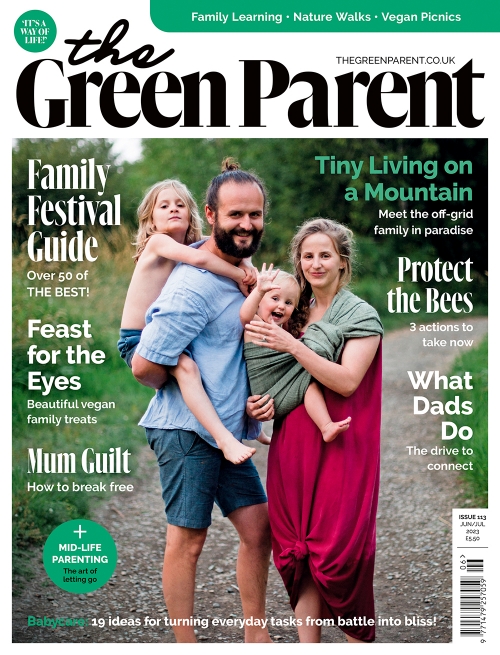I recall my former self, aged about 23, sitting around the dinner table at my friends’ house. At the time they had one child. He was refusing his dinner and they were gently offering other alternatives, or saying he could simply eat later if he wanted to. At the time, I was baffled. Why are they just ‘letting him get away with it’? Where is the discipline? The sanctions? I was a very inexperienced trained teacher, believing myself fully skilled in the realm of behaviour management. Adults should be superior and all knowing, surely? How will children ever learn to ‘behave’ if we don’t take charge? I scoff at my earlier self! With my one year old on my hip and a stack of parenting books on my bookshelf I now understand what I was seeing at the time. Whether my friends were familiar with her work or not, they were following the tenets of respectful parenting, as heralded by renowned parenting and childcare expert, Janet Lanbsury. Now, after seeing how it worked for them, I do the same, and I’d love to share my experience.
Who is Janet Lansbury?
First, though, who is Janet Lansbury? Let’s explore a little about her, and what she teaches, before I go into how this has impacted my cobbled together parenting journey so far. Janet Lansbury is a trained Parent/Infant Guidance Instructor, taught under the legendary Magda Gerber and taking much of her teachings from Gerber’s guidance. Gerber teaches an approach called Resources for Infant Educarers (you read that right), which at its roots supports the notion that babies are whole people, worthy of our deep respect, and should be treated as such. This doesn’t seem groundbreaking initially - of course children are people! Of course we respect our infants! When broken down however, this is quite a counter-cultural parenting practice.
What does respect mean?
What do you think of when you think of the word ‘respect’? For me, it’s about taking notice and fully recognising the wants and wishes of others. Can any of us truly say this is the natural inclination we have towards children? To fully respect how they feel, and not try and change it (like accepting their tears as valid without telling them it’s okay and they don’t need to cry)? To recognise the importance of their bodily autonomy always (for example, talking them through what is happening when changing their nappy)? This is the base of Gerber, and Lansbury’s teaching - that we respect the wants and needs of a child as being as valid as those of an adult within boundaries of safety.
“When we perceive our infants as capable, intelligent, responsive people ready to participate in life, initiate activity, receive and return our efforts to communicate with them, then we find that they are all of those things,” explains Lansbury. “I am not suggesting that we treat infants as small adults. They need a baby’s life. But they deserve the same level of human respect that we give to adults. If you asked (and they could answer), here are some examples they might offer of baby care that reflect that respect:
- Tell me what’s going on
- Give me attention
- Hear me, don’t just fix me
- Let me create and initiate my own activities
- Trust me with the truth.”
Having seen how effectively this worked for my friends, and seeing how much passion Lansbury puts into her work, I decided to follow suit. We weave Lansbury’s teachings into this patchwork quilt of raising our daughter - here are some of the key ways we see it in action.
Child-led play
I’m passionate about child-led play. We fill our home with toys that are open ended as much as possible, and we really encourage our child to follow her interests. We respect that she is capable of showing what she wants to do, and exploring, without the need for lots of adult intervention. I’m under no illusion that children learn everything they need to know via osmosis - but I really believe that we underestimate what children are capable of. We do our best to give our daughter lots of chances to show us, before we step in to teach.
“Instead of ‘it’s ok’, we might say ‘ouch, you look sad!’ after a scraped knee. As Lansbury says, ‘hear me, don’t just fix me’”
How I speak to my child
Growing up in the 90’s and early 00’s, the common adage to my tears were ‘it’s all ok’. That’s a response that came with the utmost love - but it’s one I try to avoid. If your friend was in tears, would your natural response be to tell them that in actual fact, the thing they are upset about isn’t that important, and that everything is fine? That they don’t need to cry? Unlikely - we’re far more likely to validate their experiences, make them a cup of tea, and offer comfort. That’s the focus I strive for with my child. I validate, as much as I can remember. Instead of ‘it’s ok’, we might say ‘ouch, you look sad!’ after a scraped knee. As Lansbury says, ‘hear me, don’t just fix me’. This extends to feelings of frustration. If my toddler is angry, I don’t expect her to hide those feelings. Lansbury talks a lot about ‘sportscasting’ big emotions, instead of trying to solve them. I say out loud what I’m seeing and validate those emotions to teach my child that it is okay and normal to feel, stepping in to prevent any physical manifestations of that anger, as Lansbury often says on her podcast Unruffled: ‘Yeah you’re really mad, but I won’t let you hit’. This takes me on to another area of parenting that I’ve really taken from Lansbury: boundaries.
Boundaries with respect
The fear I often come across when talking about the way we parent is lack of boundaries. It might at first seem that respecting the wishes of our children is the same as not having any limits on what is and isn’t acceptable; but this couldn’t be further from the truth. The key, in fact, to respecting the feelings of a child as much as those of the adult is setting clear limits and communicating them. Limits can be those of safety and also practicality, and the focus throughout is about validating the feelings that those limits can bring. If we’re going out somewhere, for example, and my child doesn’t want to go, I would respectfully explain why we’re going, and pick her up to take her. I would validate that she’s mad, if she is, and not expect her to change how she feels.
Final thoughts
This is really just the tip of the iceberg when it comes to how we incorporate the teachings of Janet Lansbury, and we’re so far from perfect. We do feel, though, that we have a slightly more peaceful home because of her teachings. If you’re interested in reading up more on her work, I heartily recommend her free podcast, Unruffled. It takes you through her teachings in each episode through examples from her readers, and helps explore putting it all into practice. It’s how we started, and got me hooked! Happy respectful parenting!
Emily is a mother of one who is learning respectful parenting practices as her daughter grows. Read her blog at emilyhanson.co.uk.
5 Tenets of Respectful Parenting
- “Tell me what’s going on” Lansbury advocates for communicating with your child what is happening in their lives. This might be sportscasting their frustrations, or explaining what you’re going to do at the supermarket.
- “Hear me, don’t just fix me” Lansbury shares the importance of listening to your child without trying to change their emotions, or fix their problem without giving them a chance to do it themselves.
- “Trust me with the truth” Lansbury teaches us to be truthful to our children in an age appropriate way.
- “Give me attention” Lansbury shares the importance of truly communicating with your child through actively listening to their thoughts and ideas.
- “Let me create and initiate my own activities” Lansbury teaches that children have the capacity to create wonderful play opportunities and learning experiences without constant adult guidance.
Photography: Jenny Ellen instagram.com/magpie.eye.kids/







